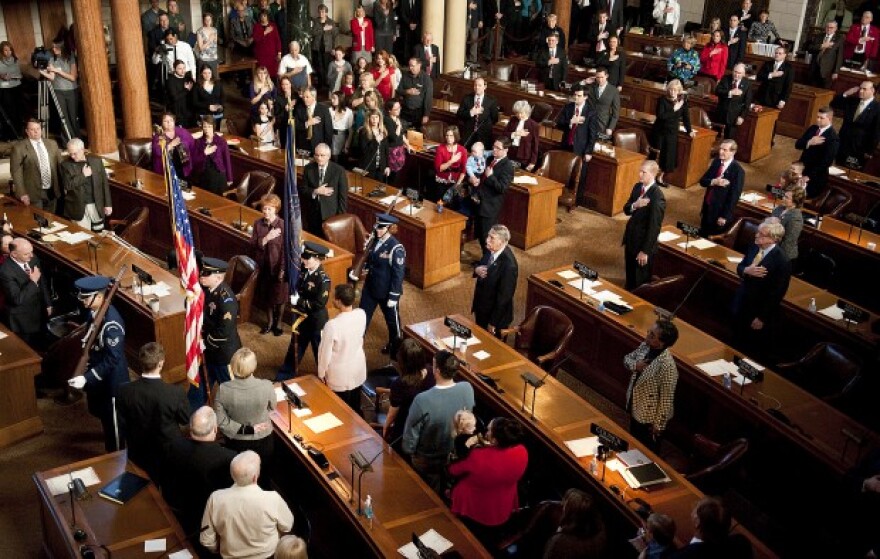LINCOLN--Nebraskans voted to ensure their right to hunt and fish, but denied state senators an extra term and more pay.
With 60 percent of precincts reporting, all four Nebraska Constitutional amendments looked to be handily decided.
The first amendment on the ballot, the Nebraska Grounds for Impeachment Amendment, was approved by voters at 83 percent. This measure makes any misdemeanor by a candidate running for office grounds for impeachment.
In its current state, the constitution allows for impeachment of elected officials only if they commit a crime while in office. Supporters argued this is a loophole that needs to be closed. Opponents, however, countered that the amendment would only increase political harassment of officeholders by allowing for lawsuits over minor violations of campaign finance and funding laws.
The last public official to be removed from office was University of Nebraska regent David Hergert in 2006. Hergert intentionally filed false financial statements after being sworn in; had he filed a few days earlier, he would have likely been protected.
The second amendment easily being approved was the Nebraska Hunting and Fishing Amendment at 76 percent, which defines hunting and fishing in the state as a right. The amendment also names hunting, fishing and harvesting wildlife as preferred means of controlling wildlife.
The proposal was sponsored by Sen. Pete Pirsh of Omaha who insists the amendment is necessary to protect hunting rights, which supporters consider fundamental freedoms and critical to Nebraska’s economy.
Opponents called the amendment frivolous to include in the Nebraska Constitution.
The amendment could also change current legislation on hunting, including the possibility of negating the state’s ban on hunting sandhill cranes. It was backed by many outdoor enthusiasts, like the Nebraska Firearms Owners Association, the Nebraska Game and Parks Commission and the Nebraska Wildlife Commission.
Rejected in the early voting were two amendments pertaining to state senators’ term lengths and pay.
Nebraska Term Limits Amendment would have raised term limits from two to three consecutive terms but was being rejected with 65 percent of the vote.
The proposal was introduced by Sen. Tom Carlson of Holdredge, who suggested the first term-and-a-half is relegated to “learning the ropes” of the Legislature, and the additional term would be beneficial as more experienced members would be in the Legislature. Carlson also pointed out that if constituents were unhappy with their representatives, they could, of course, vote them out.
Opponents of extending term limits argued lawmakers would become career politicians and forget who they are supposed to serve. Term limits have been in place in Nebraska since 2000. Nebraska is one of 15 states with a restriction on the number of terms a public official can serve.
The fourth measure, the Nebraska Legislative Salary Amendment that would have raised state legislative salaries to from $12,000 to $22,500 a year, was also being rejected by voters by 66 percent.
The proposal was introduced by Sen. Scott Lautenbaugh of Omaha. Supporter Sen. Les Seiler of Hastings told KHASTV News 5 that this measure would increase opportunities for interested candidates who would not be able to afford a position in the Unicameral.
"There's a lot of young senators down there that I don't know how they make it on that kind of salary. They're working their tails off," Seiler said.
Senators' pay is set in the Constitution and only can be changed by a statewide election. The current salary of $12,000 was set in 1988.
Contact Benjamin Welch at nns.bwelch@gmail.com


